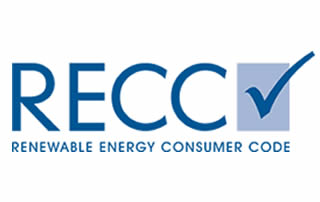Batteries have become an increasingly popular option for storing energy from renewable sources such as solar and wind power.
While battery technology has come a long way in recent years, there are still both pros and cons to consider when it comes to using batteries for energy storage.
Pros of Using Batteries for Energy Storage:
- Improved Energy Reliability
One of the primary benefits of using batteries for energy storage is improved energy reliability. By storing excess energy from renewable sources in batteries, you can use that energy when it is needed, even if the sun isn’t shining or the wind isn’t blowing.
- Reduced Energy Costs
Using batteries for energy storage can also help reduce energy costs. By storing excess energy from renewable sources, you can avoid the need to purchase electricity from the grid during peak demand times when energy prices are highest.
- Increased Energy Independence
Using batteries for energy storage can also help increase energy independence. By storing energy from renewable sources on-site, you can reduce your reliance on the grid and avoid the impact of power outages or energy price increases.
- Reduced Carbon Footprint
Using batteries for energy storage can also help reduce your carbon footprint. By storing energy from renewable sources, you can reduce your reliance on traditional energy sources that produce harmful emissions and pollutants.
Cons of Using Batteries for Energy Storage:
- Cost
The primary drawback of using batteries for energy storage is the cost. While battery technology has come a long way, batteries can still be expensive, and the cost can be a barrier to adoption for many homeowners and businesses.
- Limited Lifespan
Batteries have a limited lifespan and will eventually need to be replaced. While the lifespan of batteries has been increasing in recent years, replacing batteries can still be costly and time-consuming.
- Environmental Impact
The production of batteries can have a significant environmental impact, with the extraction of raw materials and the manufacturing process contributing to pollution and environmental degradation. Additionally, batteries can be difficult to recycle, leading to potential waste and pollution at the end of their useful life.
- Safety Concerns
Batteries can also pose safety concerns, particularly in the case of lithium-ion batteries. These batteries have been known to overheat or catch fire, posing a risk of injury or property damage.
In Conclusion
Using batteries for energy storage offers a range of benefits, from improved energy reliability to reduced energy costs and increased energy independence. However, there are also drawbacks to consider, including the cost of batteries, their limited lifespan, potential environmental impact, and safety concerns. Ultimately, the decision to use batteries for energy storage will depend on a range of factors, including cost, reliability, and sustainability goals. If you’re interested in exploring the use of batteries for energy storage for your home or business, it’s important to consider these factors carefully and work with a reputable energy storage provider.







